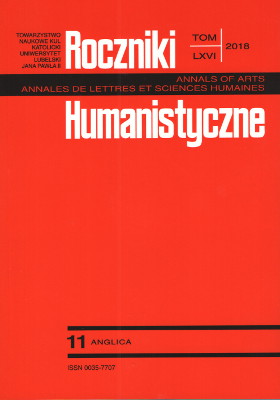From the Profane to the Sacred: Prison-Space Transformations in G.G. Byron’s “The Prisoner of Chillon” and O. Wilde’s “The Ballad of Reading Gaol”
From the Profane to the Sacred: Prison-Space Transformations in G.G. Byron’s “The Prisoner of Chillon” and O. Wilde’s “The Ballad of Reading Gaol”
Author(s): Anna Kędra-Kardela, Aleksandra KędzierskaSubject(s): Language and Literature Studies, Studies of Literature, Other Language Literature
Published by: Towarzystwo Naukowe KUL & Katolicki Uniwersytet Lubelski Jana Pawła II
Keywords: G.G. Byron; O. Wilde; “The Prisoner of Chillon”; “The Ballad of Reading Gaol”; prison space; the sacred; the profane
Summary/Abstract: This study focuses on two prison poems: “The Prisoner of Chillon” by G.G. Byron and “The Ballad of Reading Gaol” by O. Wilde. It highlights the ordeal of the inmates with the emphasis on the change in their perception of the prison space. Based on M.-L. Ryan’s definition of story space, it is argued that the changing perception of space in the poems reflects the spiritual transformation the protagonists undergo. The experience of confinement leads, in the case of Byron’s protagonist, to the acceptance of prison life to the point of the dungeon becoming “a second home,” sacred to him as a site of his brothers’ burial. In Wilde’s poem incarceration has a transformative function, culminating in spiritual awakening and in the development of faith in Christ’s redemption. As a result of the change in both poems, prison becomes a space of prayer, turning thereby from the profane into the sacred.
Journal: Roczniki Humanistyczne
- Issue Year: 66/2018
- Issue No: 11
- Page Range: 149-164
- Page Count: 16
- Language: English

